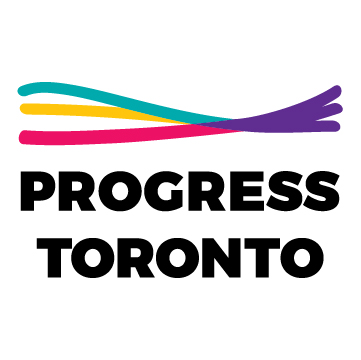Letter to City Manager:
Concerns on consultations to limit freedom to protest
April 4, 2025
Re: The City of Toronto’s problematic consultation process on a by-law that could limit the freedom of protest
Dear City Manager Paul Johnson,
We are deeply concerned about the consultation process the City of Toronto has undertaken as it considers a by-law that could restrict our Charter-protected rights to freedom of expression and peaceful assembly.
We are membership and community-based organizations, and rely on our Charter rights and freedoms to advocate in the public interest for policy and action at all levels of government.
The City Manager’s Office has undertaken a consultation process as per direction in Item CC24.2. This process has prompted significant concerns from our communities regarding the launch of a public survey, as well as opaque and non-transparent processes for direct public engagement:
1. Concerns about the City’s Survey on “Vulnerable Institutions” and Charter-protected Rights
The City of Toronto launched a public online survey in mid-March of 2025. A number of organizations and community members have raised concerns about its validity, objectivity and framing:
The survey does not collect the location of participants, or request postal code data—meaning anyone can complete it, across Canada or even internationally.
The survey has no tracking information, meaning it can be filled out multiple times by the same individual or organization—this can skew results.
The survey includes troubling and potentially misleading language and premises: while the preamble states that a by-law would not be intended to restrict peaceful and lawful demonstrations, a “bubble zone” by-law would in fact limit Charter-protected rights and freedoms even when demonstrations are peaceful—doing so based on proximity rather than activity.
The survey includes subjective questions, including using respondents’ “feelings” as a metric, with no definition of terms or legal grounding. While we recognize that strong feelings may exist on a range of issues, subjective opinions should not guide the development of bylaws and regulations, particularly when considering limiting basic Charter-protected rights and freedoms.
The survey contains leading questions, some of which already adopt the premise of a municipal by-law, including: “If Toronto adopted a by-law that prohibited certain activities within specific distances around vulnerable institutions, what distance do you think would be most appropriate?” These questions are both biased towards a certain outcome and do not include critical context about the existence of such a by-law potentially infringing on Charter-protected rights.
The City’s paid advertisements promoting the survey resulted in hateful comments on the ads on social media sites. These comments were not moderated and contributed to a divisive online environment. The City has a responsibility to promote its surveys in ways that encourage respectful and productive public conversation.
2. Concerns about the Opacity of the Consultation Process
As organizations deeply concerned about democratic processes, and with long histories of working with the City to advance robust consultations, we have been awaiting clear information about in-person engagement opportunities to share with our members for nearly four months. However, on April 2, we learned that the in-person consultation process from your office is designed to operate as invitation-only. While we acknowledge that your Office may also plan to hold additional consultations, we are deeply disappointed and frustrated by the lack of transparency throughout this process. An invitation-only format excludes residents and the opacity of the entire consultation process undermines its legitimacy.
Given the potential city-wide impact of such a by-law and restrictions to Charter-protected rights, the City has a responsibility to proactively communicate with organizations and the public about the full scope of its consultation efforts. To date, we have not seen any clear, publicly available information outlining the entirety of the City’s consultation plan as it considers this potential by-law.
The concerns we have outlined above are not exhaustive, but they point to a clear lack of due diligence in your current approach.
As organizations representing tens of thousands of residents across Toronto, we urge you to take immediate steps to address the flaws in this consultation process, and we will be asking other organizations to join us in this call.
Thank you,
Toronto York Region Labour Council
Wildseed Centre
Toronto Environmental Alliance
Social Planning Toronto
Progress Toronto
TTCRiders







